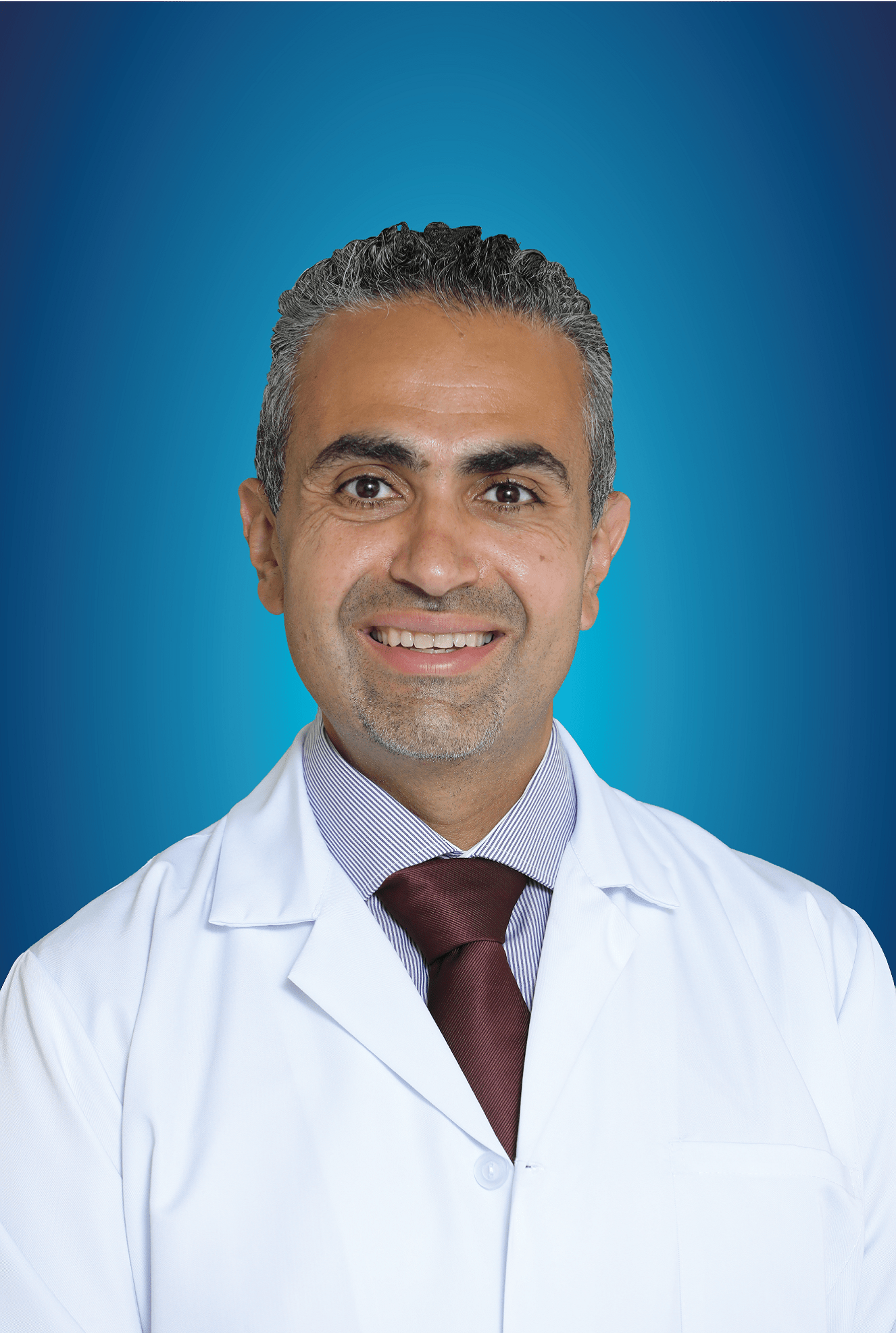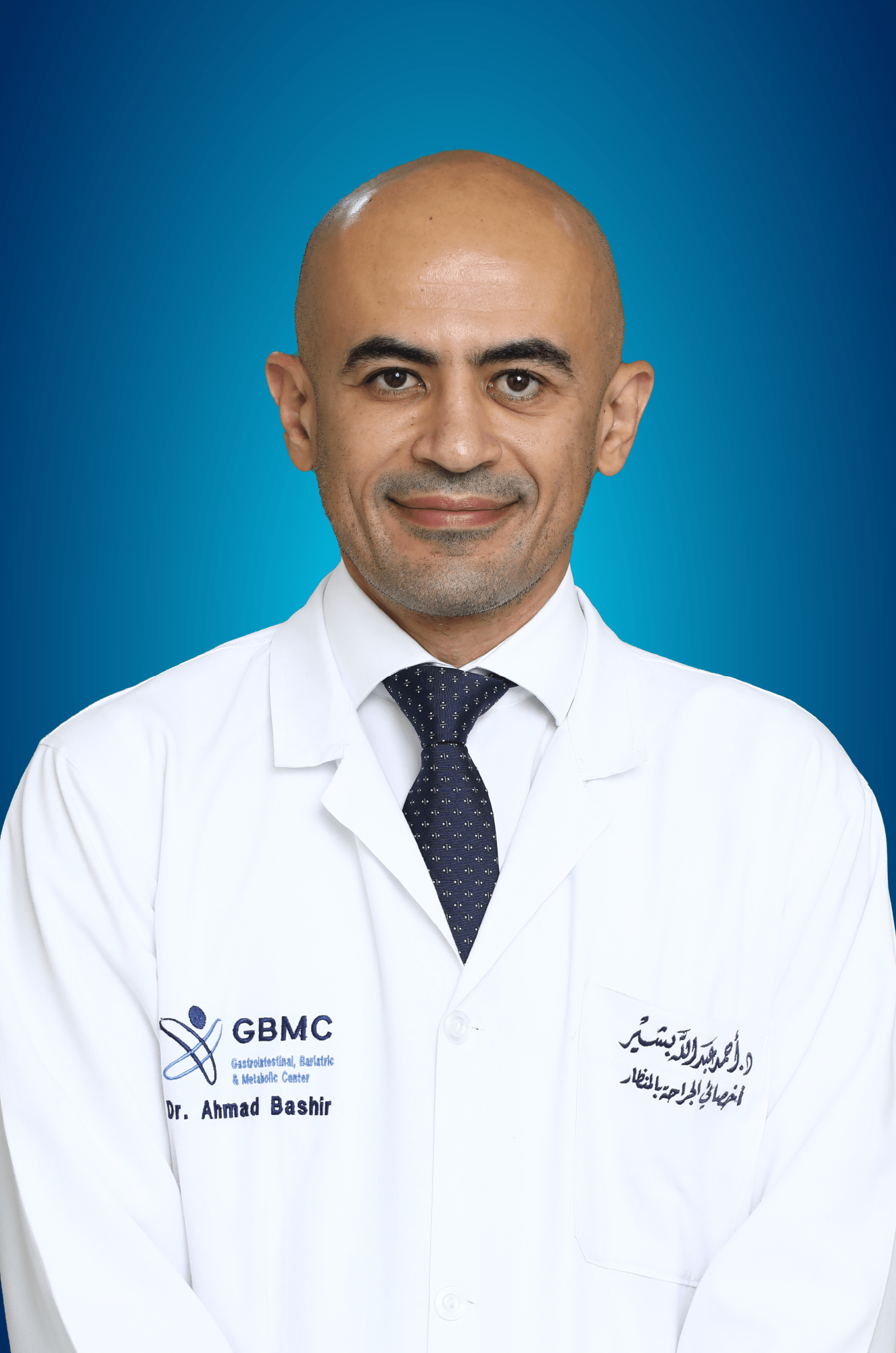General Overview
The Bariatric Surgery Department at Jordan Hospital, in collaboration with Gastrointestinal, Bariatric & Metabolic Center (GBMC), has been a recognized contributor to the American College of Surgeons bariatric surgery quality improvement registry known as MBSAQIP. All centers of excellence collect their data on this registry and receive semi-annual reports of their performance. Therefore, having bariatric surgery at Jordan Hospital means having surgery at a center of excellence, with outcomes resembling those centers in the USA.
Our Department has vast experience and has been established since 2010, while offering all types of solutions for weight loss: Non-surgical endoscopic solutions and all types of primary and revisional bariatric surgery. A best-recommended treatment regimen or plan can only be determined after a full consultation and workup.
The hospital provides full supporting staff and facilities, including ICU care, physical therapy, counseling, and dieticians to ensure optimal care of our patients at Jordan hospital.
Bariatric surgery is not for everyone. First, you have to be a candidate. To find out if you are, please consult one of our surgeons.
Procedures done by the Department
Laparoscopic Roux-en-Y Gastric Bypass
The oldest primary bariatric procedure, since the 1960s, with proven-long term outcomes. The surgery is done laparoscopically with small keyhole incisions. A small stomach pouch is created and connected immediately to the small intestine, bypassing the rest of the stomach, duodenum, and a small portion of the jejunum.
This procedure is considered best for those who have obesity with type II diabetes or severe heartburn (acid or bile reflux (GERD))
Laparoscopic Sleeve Gastrectomy
The most common bariatric procedure performed worldwide. It is relatively newer and entails resecting 75-80% of the stomach and converting it into a narrower tube, hence the sleeve.
It is, however, associated unfortunately with an increased risk of acid or bile reflux (GERD) after the operation. Therefore, to minimize the risk, patient selection is of utmost importance.
Sleeve gastrectomy is considered a great operation for specific candidates. However, that can only be determined after consultation and a complete workup, including preoperative endoscopy.
Laparoscopic One-Anastomosis Gastric Bypass previously known as Mini-Gastric Bypass
A relatively even newer operation, with less-known longer-term outcomes. It is considered versatile and powerful as a procedure, and carries a higher risk of vitamin and mineral deficiencies, as the length of the small intestine bypassed in this procedure is generally more compared to the classic Roux-en-Y bypass.
In our Department, we provide a tailored bypass length depending on each individual’s length of the entire small intestine. Still, this procedure has its candidates and cannot be offered to everyone. Therefore, our surgeons participated in vast research to increase global awareness and risks of this procedure, as it is widely offered in the region.
Laparoscopic Duodenal Switch with its variations
This is considered the most powerful metabolic and bariatric procedure. It provides the highest chance for weight loss, remission, and improvement of diabetes and hyperlipidemia. It is increasingly offered as a revisional procedure for patients presenting with weight regain after sleeve gastrectomy.
Our surgeons perform this procedure with its variation, single of two-anastomosis (connections). It requires a vast experience and ability from the surgeons, while requiring patients to follow instructions more stringently, with closer follow up especially during the first year, and a strict intake of higher amounts of vitamins and minerals over the long run to avoid its potential deficiencies. Specialized vitamins are provided from the hospital in collaboration with GBMC.
Laparoscopic Revisional Procedures
Revisions include corrections for complications, or conversions for complications, weight regain or insufficient weight loss from another previous bariatric procedure. These procedures are studied on a case-to-case basis, and can be done after thorough work up that included, nutritional blood work, imaging and endoscopy.
Our surgeons have been performing revisions for the past decade with excellent outcomes and a very low complication rate, without requiring open surgery. All these procedures are done laparoscopically, even after several prior procedures. They do however, entail longer procedure time and potential cost.
Endoscopic Interventions
These interventions are reserved for patients who do not qualify for surgery, lower weight and body mass index, or higher risk of general anesthesia to minimize this risk in preparation for a potential bariatric procedure.
Intra-Gastric Balloons, including the swallowable Elipse balloon is available. Newer procedures such as Endoscopic Sleeve Gastroplasty will soon be available at our Department.
Bariatric Surgery Doctors
Medical Services
Contact Us
Please feel welcome to contact our friendly reception staff with any general or medical enquiry call us.


